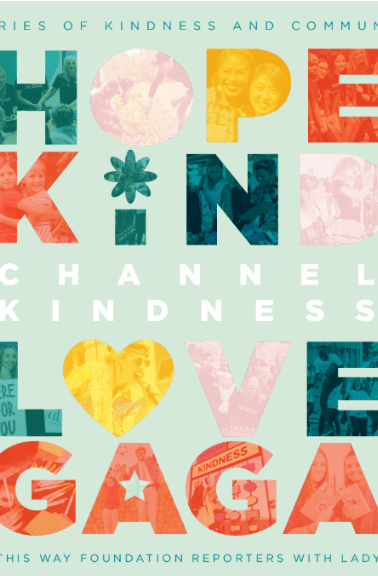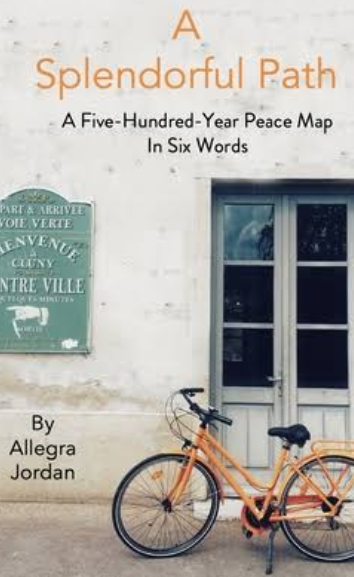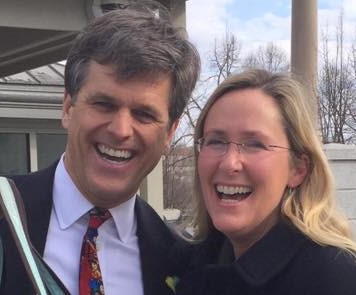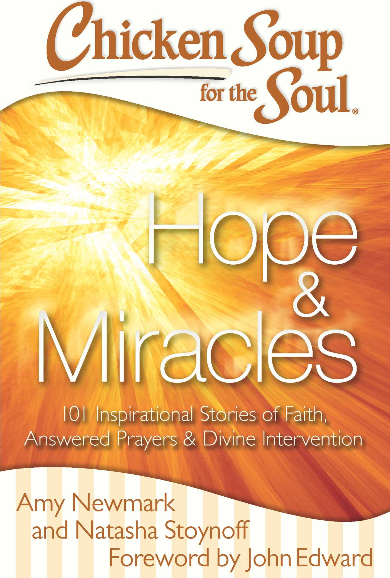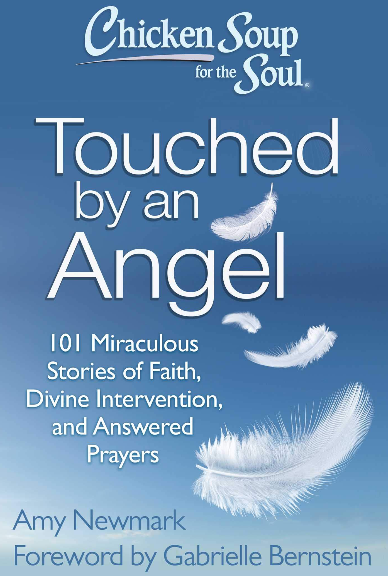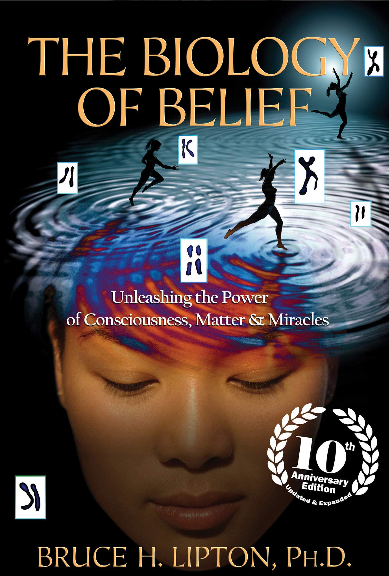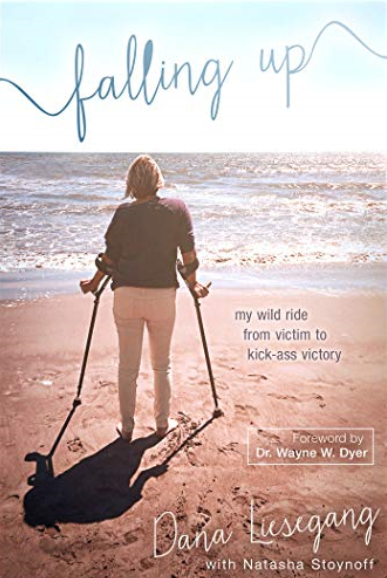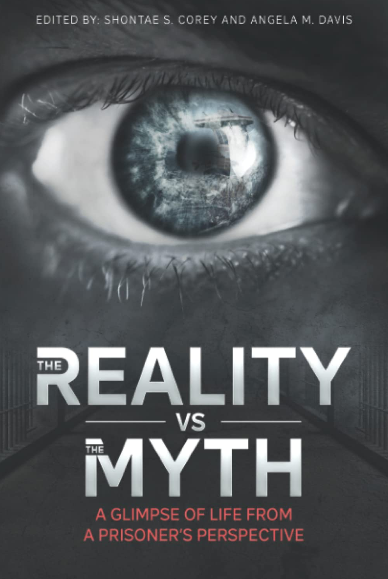SAMPLE LESSONS
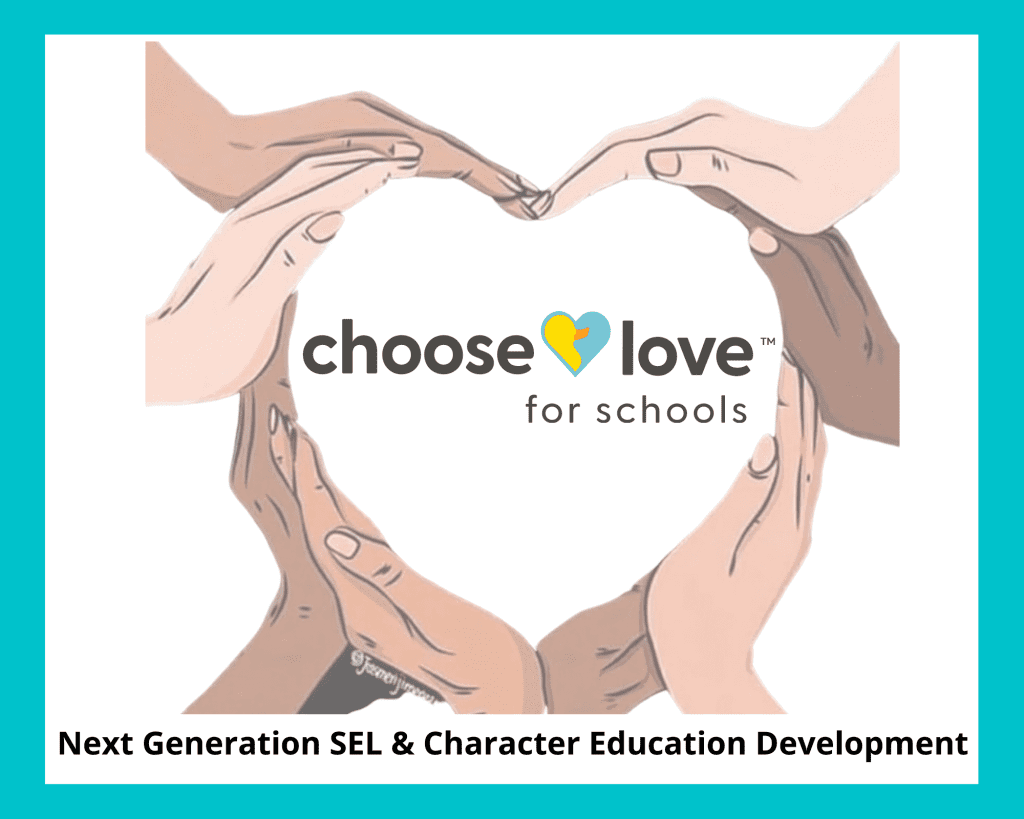
WELCOME TO THE CHOOSE LOVE MOVEMENT
My name is Scarlett Lewis, and I’m the founder of the Jesse Lewis Choose Love Movement. This initiative started with three words written on a kitchen chalkboard by my six-year-old son, Jesse McCord Lewis, on the morning of December 14, 2012. He wrote, “nurturing, healing, love.” He lost his life later that day alongside six educators and 19 of his classmates at Sandy Hook Elementary School in Connecticut. His message constitutes a powerful formula for choosing love.
The Jesse Lewis Choose Love Foundation is a 501(c)(3) charitable organization committed to reaching students, educators, and individuals, both nationally and internationally, with a simple, yet profound formula for choosing love. Our signature program uses “nurturing, healing, love” as a foundation for learning and for life.
WHY THIS CURRICULUM MATTERS
Choosing love means having the courage to be grateful when life isn’t easy, to forgive even when the person who hurt you isn’t sorry, and to step outside your own pain to help someone else. It’s an empowering lesson that love is a choice.
Almost half of our young people will have a diagnosable mental illness by the time they are 18 years old (“Child Mind Institute,” 2016). Children today are under more stress than children of previous generations. The most common diagnosis will be anxiety, and the majority will not get professional help (Bluth & Blanton, 2014). The average onset age for anxiety is six years old. The long-term effects of anxiety are mental illness, substance abuse, anger, violence, and incarceration (Harbaugh & Vasey, 2014). It’s not a mystery why we have issues in our schools and society. The solution is teaching children to choose love.
Children who feel connected, who are resilient, and who can reciprocate love won’t want to harm each other (Garney, 2016). We can teach children to choose love. Love is a universal need, the lack of which can be devastating. That’s why I started the Choose Love Movement.
Over 30 years of research substantiates the benefits of social and emotional learning (SEL) (“CASEL: What is SEL,” 2016). SEL lays the groundwork for academic learning and responsible citizenship. It has been proven to increase grades, attendance, and focus while reducing aggression, anxiety, substance abuse, and other issues (“CASEL: What is SEL,” 2016). SEL fills a critical role in improving children’s academic performance and lifelong learning (Zins, Bloodworth, Weissberg & Walberg, 2004). Children who are aware of their emotions and have good planning skills by the time they enter school are also at lower risk for problems with aggression and anxiety disorders (Greenberg, Kusch, & Mihalic, 1998).
Students aren’t the only ones to benefit from SEL. Schools are challenged by teacher attrition and unsafe learning environments (“CASEL: What is SEL,” 2016). When educators teach SEL, they help students create safe, loving, and healthy problem-solving communities that enhance teachers’ ability to teach as well as students’ ability to learn (CASEL: Outcomes Associated with Five Competencies, 2016).
Choose Love is proudly aligned with the new Character and Social Emotional Development Standards (CSED) which include BOTH Character.org and CASEL standards. PLUS, our Choose Love programs include Growth Mindset, Neuroscience, Mindfulness, Positive Psychology, Post-Traumatic Growth, and Emotional Intelligence components to create a solution that is both preventative and proactive.
These branches of knowledge, and the essential principles highlighted within our programming, have decades of scientific and qualitative research supporting their effectiveness. In addition, each of the character values in the Choose Love Formula (Courage + Gratitude + Forgiveness + Compassion-in-Action), which are at the heart of the Choose Love Movement, have strong evidence supporting their many benefits.
Choose Love For Schools™ teaches skills and concepts that are grounded in and support Social and Emotional Learning (SEL), addressing the 5 Core Competencies as defined by CASEL (Self-Awareness, Self-Management, Social Awareness, Relationship Skills, and Responsible Decision-Making Skills). SEL has decades of research validating its tremendous and positive impact on students’ social and emotional well-being as well as on academic and personal success. For more information on SEL and specific research on SEL, we encourage you to visit https://casel.org/ where you can be linked to SEL research and its impressive benefits.
Overall, scientific research proves that teaching evidence-based SEL in the classroom significantly benefits all children, including those with special needs – that is, providing academic, behavioral, physical, mental, and socio-emotional benefits. To summarize the research data referenced above, benefits include improvements in social cognitive skills, self-control, and frustration tolerance; decreased anxiety, depression, sadness, and withdrawal; improved classroom atmosphere; less aggression and self-destructive behavior, including drug-use initiation; better scores on standardized achievement tests; more assertive social skills; effective conflict resolution; and increased pro-social behaviors, as well as less violence and more empathy.
For the 2020-2021 school year, our Choose Love For Schools™ program was updated to also align with Character.org’s new Model Standards for Character and Social-Emotional Development. These standards include the 5 core components of SEL (Self-awareness, Self-management, Social awareness, Interpersonal/Relationship skills, Responsible & Ethical Decision-Making) as well as moral, performance, intellectual and civic character strengths.
Aside from the foundational and guiding evidence-based and research-grounded competencies and principles which comprise our program, the Choose Love Enrichment Program package has been systematically evaluated by The University of Arkansas researchers, Dr. David D. Christian, PhD, LPC-S Assistant Professor of Counselor Education and Kristin K. Higgins, PhD, LPC-S Associate Professor of Counselor Education Department of Rehabilitation, Human Resources, and Communication Disorders College of Education and Health Professions University of Arkansas, et al., who assessed our program in an alternative school setting. The preliminary findings showed positive impacts and results which have been submitted for publication in a peer-reviewed journal.
In addition, during the school year of 2016-2017, Ka’elepulu Elementary Elementary School in Kailua Hawaii was the first pilot school to implement the Choose Love Enrichment Program. The administration conducted its own research within its classrooms that resulted in substantial positive outcomes in all areas. The reported outcomes of this study can be reviewed here.
While not intended to scientifically assess the effectiveness of the program, we also annually collect survey-based program evaluation data for quality improvement purposes. We survey all users about their experience and satisfaction with the program.
Of respondents (N=282) to the 2021 Choose Love Educator Impact Survey:
- 78% of educators reported students showing more COURAGE (trying new or difficult tasks, expressing themselves more, etc.)
- 81% of educators reported students showing more GRATITUDE (appreciation, empathy, kindness).
- 73% of educators reported students showing more FORGIVENESS (less aggression, more self emotional control).
- 80% of educators reported an increase in COMPASSION-IN-ACTION (improved social skills, enhanced connections).
- 73% of educators reported students getting along better in their classrooms.
- 73% of educators reported an improvement in students’ attitudes.
- 58% of educators reported increased academic success.
- 85% of educators say they enjoy teaching the program.
- 77% of educators believe students enjoy the program.
- 68% of educators report increased job satisfaction as a result of teaching Choose Love.
- 91% of respondents believe the program is effective.
- 84% of respondents reported an improvement in classroom climate since using Choose Love.
- 81% of respondents reported an improvement in students’ behavior since using Choose Love.
Of respondents (N=277) to the 2020 Choose Love Educator Impact Survey:
- 99% said that they have seen an improvement in classroom climate and in the students’ overall behavior.
- 73% said that their students get along better.
- 81% said their students have a more positive attitude.
- 62% have seen an increase in academic performance in their students.
- 95% rated the program ‘good’, ‘very good’, or ‘excellent.’
- 99% said they enjoyed teaching the program.
- 96% said their students enjoyed the program.
Another study was recently performed to investigate the perceptions of educators toward their role with meeting the social and emotional needs of students, as well as how educators and students experience participation in a school-based social emotional learning (SEL) program with particular focus on the experience of educators and students participating in the Jesse Lewis Choose Love Enrichment Program. Data was collected through a qualitative multiple case study design that resulted in the following themes: Perceived Role of SEL in Schools, Purpose of SEL Instruction, SEL Implementation Requirements, and Benefits of SEL. Educators and students were in agreement about program outcomes. View complete study here.
Of additional interest might be the adoption of the Choose Love For Schools™ program by the state of New Hampshire. In 2018, New Hampshire Governor Christopher Sununu’s School Safety Preparedness Task Force recommended that it was necessary to expand SEL statewide. Based on this knowledge, Governor Sununu made implementing CLEP a statewide initiative (the first in the nation to do so). To support this initiative, Governor Sununu hired additional support and our team is working closely with his office as well as the office of Homeland Security to ensure all schools have the proper channels to teach the program effectively. Here is the first year report of Choose Love implementation in NH. In a recent survey from Homeland Security & Emergency Management (HSEM), the Choose Love program was the most mentioned SEL program being used by the schools that responded – view summary charts here. In addition, Spaulding Academy & Family Services (a New Hampshire facility with programs and services for children and youth with neurological, emotional, behavioral, learning or developmental challenges) provided statistics that showed positive results after implementing the Choose Love curriculum – view the outcomes here.
The School Mental Health Collaborative at the University of South Florida is conducting a year-long study on the Choose Love For Schools™ program and the results will be shared with the Choose Love Movement once completed. The purpose of this study is to understand the impact of the Choose Love’s SEL curriculum on students’ social-emotional development. The Choose Love Student Survey was designed to assess students’ growth in each of the five areas of competence outlined by CASEL; however, psychometric properties of this survey have yet to be examined. The present study “An Examination of the Psychometric Properties of the Choose Love’s Student Survey-Revised” aims to evaluate the extent to which survey items fit within the five areas of competence (self-awareness, self-management, social awareness, relationships skills, and responsible decision-making) and the extent to which the Choose Love surveys are reliable at assessing students’ social-emotional abilities.
Last and certainly not least, we have an extensive database of qualitative data in the form of educator feedback, student work samples, personal testimonials, and more, praising the Choose Love Enrichment Program and its impact on students, classrooms, and entire schools. This rich qualitative data highlights the personalized ways in which the Choose Love Enrichment Program goes beyond a program by initiating a daily practice whereby educators and students, classrooms and schools, create and sustain a positive and engaged culture of love. It has been amazing to hear and read about how students have been individually and collectively empowered as they are better able to handle emotions, have become more resilient in the face of adversity, can connect in meaningful ways with their peers, are engaged in a positive classroom culture, and are able to make healthy, responsible choices that better their lives and the lives of others. This qualitative data is what we consider to be some of the most valid and important data of all. We have provided a sample following the REFERENCES section.
REFERENCES
American Counseling Association. (2011a). Fact sheet 7: Terms to know. Retrieved from https://www.counseling.org/docs/trauma-disaster/fact-sheet-7—terms-to-know.pdf?sfvrsn=2
American Counseling Association. (2011b). Fact sheet 3: Disaster and trauma responses of children. Retrieved from https://www.counseling.org/docs/trauma-disaster/fact-sheet-3—disaster-and- trauma-responses-of-children.pdf?sfvrsn=2
CASEL. (2015). What is social and emotional learning? In CASEL. Retrieved from http://www.casel.org/social-and-emotional-learning/
CASEL. (2015) Outcomes associated with the five competencies. In CASEL. Retrieved from http://www.casel.org/social-and-emotional-learning/outcomes/
Conflict Resolution Education in Teacher Education. Retrieved from http://www.creducation.org/cre/home/about_us/about_crete ©2019 Jesse Lewis Choose Love Movement EDUCATOR’S GUIDE | 64
Cuddy, A. (2012, June). Amy Cuddy: Your body language shapes who you are. Retrieved from https://www.ted.com/talks/amy_cuddy_your_body_language_shapes_who_you_are?language =en
“Delaying Gratification.” (n.d.). Retrieved from https://www.apa.org/helpcenter/willpower- gratification.pdf
Garney, J. (2016). Mindfulness in the Classroom: How it helps kids regulate behavior and focus on learning. In Mindfulness. Retrieved from https://childmind.org/article/mindfulness-in-the- classroom/.
Harvard Health Publications. (2015). Relaxation techniques: Breath control helps quell errant stress response. Retrieved from http://www.health.harvard.edu/mind-and-mood/relaxation- techniques-breath-control-helps-quell-errant-stress-response
HeartMD Institute. (2010). Just breathe. Retrieved from https://heartmdinstitute.com/stress-relief/just- breathe/
International Coaching Foundation. (n.d.). FAQs.Retrieved from http://coachfederation.org/about/landing.cfm?ItemNumber=844 Jones, T.S. (2010).
Journaling for mental health. (n.d.). In University of Rochester Medical Center Encyclopedia online. Retrieved from https://www.urmc.rochester.edu/encyclopedia/content.aspx?ContentTypeID=1&ContentID=45 52
Lomas, T., Froh, J. J., Emmons, R. A., Mishra, A., & Bono, G. (2014). Gratitude interventions: A review and future agenda. The Wiley Blackwell handbook of positive psychological interventions, 1-19.
Main, D. (2015, November 25). 5 Scientifically proven benefits of gratitude. Retrieved from http://www.newsweek.com/5-scientifically-proven-benefits-gratitude-398582
Mayo Clinic. (2016). Types of relaxation techniques. Retrieved from http://www.mayoclinic.org/healthy-lifestyle/stress-management/in-depth/relaxation-technique/art-20045368?pg=2
Mayo Clinic Staff. (2014). Meditation: A simple, fast way to reduce stress. Retrieved from http://www.mayoclinic.org/tests-procedures/meditation/in-depth/meditation/art-20045858
Morin, A. (2014, November 23). 7 Scientifically proven benefits of gratitude that will motivate you to give thanks year-round. Retrieved from http://www.forbes.com/sites/amymorin/2014/11/23/7- scientifically-proven-benefits-of-gratitude-that-will-motivate-you-to-give-thanks-year- round/#3ff7bbde6800
Motzkin, J. C., Philippi, C. L., Wolf, R. C., Baskaya, M. K., & Koenigs, M. (2015).
Purcell, M. (2015). The Health Benefits of Journaling. Psych Central. Retrieved from http://psychcentral.com/lib/the-health-benefits-of-journaling/
Williams, R. (2013, May 5). Do self-affirmations work? A revisit. Retrieved from https://www.psychologytoday.com/blog/wired-success/201305/do-self-affirmations-work-revisit
Ventromedial prefrontal cortex is critical for the regulation of amygdala activity in humans. Biological Psychiatry, 77(3), 276-284. doi:10.1016/j.biopsych.2014.02.014
TESTIMONIALS
“In an educational landscape where many educators have the ‘not one more thing’ mentality, Choose Love is a breath of fresh air. In fact, it is the time I most look forward to all week.” — E Birdin, Long Meadow Elementary, CT
“We have seen such a positive change in children and teachers. They are finding gratitude in the smallest things – these children live in extreme poverty, yet they are grateful. I’ve seen an increase in resilience in the students overall. I think the biggest change we’ve seen is the compassion they show to one another now. They are able to step outside of themselves and recognize the pain of others. I’ve had kids bring other kids to my room and say, ‘he needs to be in our group because …’ ” — Lisa Mackenzie, CA
“Teaching the core concepts of the Choose Love Enrichment Program fundamentally transformed my classroom and became part of our culture. During the course of teaching the formula for choosing love, my classroom climate improved dramatically and students began using the phrase ‘choosing love’ not only in our classroom but in their daily lives. In addition, I personally benefited and was able to use the lessons in my own life. I feel that I am a better person because I implemented the Choose Love Enrichment Program in my class.” — Krislyn Petti, Wilby High School, CT
“When a teacher meets their class for the first time they have planned lessons of how to improve the academic performance of each student and have a class management system in place. As we face them on the first day we don’t know anything about homes and stresses in their lives. Classrooms need relationship building curriculums which The Choose Love Enrichment Program provides for students at all grade levels and soon to be families alike.” — John Cook, All Saints School
“I found that it was 100% effective, not only did it help with my at-risk students, it helped with my students that were doing well. It teaches social-emotional learning, it teaches self-improvement, and also compassion in action. It is one of the best programs I have ever found. It is innovative, it can be used across your district. If you want to make a difference not only in your students, but in your overall faculty, you need to take advantage of this program.”
— Ginger Ulmer, Boonville, AR
“I am overwhelmed with the LOVE that is being spread in HAMBURG SCHOOL DISTRICT!!!! There is not enough time to type everything, but I will try to give you a quick summary. In Portland Elementary – every child has his or her journals. They are decorated. They have had their first lessons. In Hamburg Pre-K, lots of coloring and conversation have gone down about Choosing Love and being kind to others. They too have posters and coloring sheets. At NAES – the building leaders have taken on the job of delivering the lessons. WOW!!! This has been soooooo powerful. It is so moving. They are loving it. They too have posters and coloring sheets. At HMS – talk about rocking it. I have visited many classes. The English teachers revamped their entire curriculum to work the lessons into their literacy maps. WOW!!! I have seen skits, heard conversations, seen reading. This has been a positive storm to this building. Every teacher’s door has a message on it. Kids are talking about it. Thank you is not enough.” — Tracey Streeter, Hamburg, AR
VIDEO TESTIMONIALS
MAS Charter School, New Mexico
West Warwick, RI
Boonville High School, Arkansas
Prairie Elementary School, California
Educator Conversations
PROGRAM AT A GLANCE
The Choose Love For Schools™ Program is a Pre-K through 12th grade curriculum that emphasizes the simple, universal teachings of courage, gratitude, forgiveness, and compassion in action. The lessons are divided into these four units, which create a formula for choosing love:
The Choose Love Formula™
Courage + Gratitude + Forgiveness + Compassion in Action = Choosing Love
The Choose Love For Schools™ Program teaches the foundational concepts and skills of social and emotional learning (SEL), and is informed by current neuroscience. The goal of the program is to provide children with the knowledge, attitude, and skills they need to choose love in any situation. These abilities include:
- Understanding and managing emotions (self-awareness and self-management);
- Setting and achieving positive goals;
• Feeling and displaying empathy and compassion for others (social awareness); - Establishing and maintaining positive relationships; and,
- Making responsible decisions.
Choose Love For Schools™ Standards Alignment
- K-5 Standards Alignment
- Grade 6 Standards Alignment
- Grade 7 Standards Alignment
- Grade 8 Standards Alignment
- High School Standards Alignment
This program was designed BY educators FOR educators, and most instructors of these programs will agree that it is fun and rewarding to learn alongside the students as each lesson is taught.
No formal program training is required; you can immediately begin teaching the lessons, as you will see from the sample lessons below.
However, for those who would like to more deeply understand the context and neuroscience behind the Choose Love Formula™ we have developed a no cost, for credit (3 hours) Professional Development course (Choose Love Educator Training) that can be accessed following registration.
We also offer onboarding support, keynote speaker kickoffs, and more fee-based support programs here.
Q: What sets Choose Love For Schools™ apart from other SEL programs?
A: Choose Love For Schools™ is aligned with the new Character and Social Emotional Development Standards (CSED). These standards include BOTH Character.org and CASEL’s standards.
It also aligns with Common Core and ASCA Mindsets and Behaviors.
Choose Love For Schools™ goes beyond these standards and ALSO incorporates Growth Mindset, Neuroscience, Mindfulness, Positive Psychology, Post-Traumatic Growth and Emotional Intelligence into the lessons.
Q: How much does Choose Love for Schools™ cost?
A: It is a NO-COST next-generation program.
Q: Does Choose Love For Schools™ align with the new CASEL Framework and Definition of SEL?
A: Yes! Choose Love For Schools™ was developed prior to CASEL’s new definition and framework which was updated in November 2020. As Choose Love For Schools™ was written by educators for educators, our team consciously and thoughtfully developed the new curriculum with a more universal view which includes diversity, social justice, and inclusion.
Q: How is Choose Love For Schools™ different from the Original Choose Love Enrichment Program™?
A: Created in 2020 and completed in February 2021, the next-generation Choose Love For Schools™ builds upon the innovative foundation of the Original Choose Love Enrichment Program™ by being the first program to also incorporate the CSED model standards. We’ve also centered the Pre-K through Grade 5 lessons around literature from a variety of cultures and ethnicities which helps to teach diversity, social justice and inclusion. Finally, Choose Love For Schools™ was designed to support both classroom and remote learning environments, offering Google Slides as visual lesson support and interactive digital activities, worksheets, etc.
Q: How does Choose Love For Schools™ encourage family involvement? Community?
A: Choose Love For Schools™ units include a Caregiver Connection section that offers links to videos, activities and discussion topics from our Choose Love at Home program that was designed for quick, easy family instruction.
Many of the Choose Love For Schools™ lessons encourage learners to think about ways they can apply the lessons to improving their communities, and we also proudly offer programs developed for Community organizations and for Athletes and Youth Leadership development because we are committed to helping extend the benefits of the Choose Love Formula™ beyond the classroom.
Q: Does Choose Love address racism, diversity, inclusion, and social justice?
A: Yes! Choose Love For Schools™ teaches diversity, social justice and inclusion through multicultural literature (grades Pre-K-5,) group activities, videos, and contemplative questioning. Students learn how we are all the same and how to value and celebrate our differences.
Multicultural literature has the power to unite children from different cultural and ethnic backgrounds. When students learn to appreciate differences they realize there is beauty in our diverse and blended world. They learn to take different perspectives, and develop respect and compassion when they learn about various cultures. Students also see themselves represented in literature and learn to develop self-love and self-compassion, they are able to empathize and sympathize with diverse characters.
Students develop a greater understanding of other people’s perspectives and experiences. Having perspective is a crucial element for promoting peace, acceptance, and love.
Q: Does Choose Love fit into the Multi-Tiered Systems of Support Model (MTSS?)
A: Within the three levels of MTSS, Choose Love can be a universal support to ALL students. It can also be utilized in small groups with targeted support to provide short-term intervention by a counselor, or intervention teacher. Choose Love For Schools™ is not a therapeutic program and may not be appropriate for intensive, individualized support and intervention for students with more intensive needs.
Q: Does the program address self-harm and/or suicide prevention?
A: Choose Love For Schools™ addresses the cause of the suffering that often leads to self- harm. Choose Love For Schools™ is not intended to be a replacement for therapy. Choose Love For Schools™ is an educational model, not a therapeutic model, and does not attempt to diagnose or provide therapeutic instruction. The Choose Love For Schools™ curriculum can be easily adopted by Educators, Counselors and Social Workers.
Q: Why is literature central to the Pre-K through Grade 5 lessons in the new Choose Love For Schools™?
A: The literature component is not necessary to teach the four pillars of the Choose Love Formula™; however, each book was hand-selected by our team in order to teach diversity, inclusion, and social justice. The literature component is also what sets Choose Love For Schools™ apart. Experiencing the literature and going on the journey with the characters emphasizes the Choose Love Formula™: Courage + Gratitude + Forgiveness + Compassion in Action = Choosing Love
Literature is the pathway to the heart and connections with others. It fosters positive self-esteem and empathy, supports inclusion, and nurtures respect and acceptance among students. When students realize everyone feels the same emotions, no matter the color of their skin, where they come from, what language they speak, or how they look, they realize their similarities are more than their differences.
Q: Does Choose Love For Schools™ require training in order to implement?
A: NO! The curriculum is written so that the educators can learn alongside their students. There is very little preparation required, making it easy to teach and easy to learn. We do, however, offer additional training and support which you can learn more about here.
Q: How long does each lesson take to complete?
A: Pre-K through 1st grade lessons take approximately 15-20 minutes; 2nd and 3rd take approximately 20-30 minutes; 4th and 5th take approximately 30-45 minutes. The lessons are designed to be completely flexible. They may be completed in one session or broken into smaller sessions throughout the day or over the week.
Q: Does the Jesse Lewis Choose Love Movement offer professional development opportunities?
A: Yes! Our team will connect you with your state ambassador who can help facilitate tailor-made professional development for your specific needs. Learn more here.
How To Access Complete Programs
Access to the complete programs by grade level, including supporting visual materials, a complete Educator Guide, Implementation Best Practices and more can be accessed following this brief registration process. By registering your classroom, school or other instructional setting you will assist us in scaling our resources to ensure continued support for the programs.
SAMPLE LESSONS
We invite you to bring Lesson 1 of our COURAGE Unit into your classroom (or remote instruction environment) and experience the transformative power of this program for yourself.
Each Lesson has 2 parts:
- Lesson Plan that is viewable online as a PDF or downloadable
- Accompanying Google Slides presentation, intended for visual support of lesson but not as replacement for Lesson Plan.
Beneath the Google Slides viewer, which allows you to present the slides directly via the lesson page, we have included a direct link to the Google presentation as well as a downloadable Powerpoint version of the slideshow. The downloadable Powerpoint offers you the flexibility to edit the slides and/or upload them as Google Slides to your own Google Classroom/school server.
Also available for each grade level upon registration are digital/printable worksheets and supporting visuals to accompany each lesson, a growing library of interactive activities to support remote learning, an Implementation and Best Practices Guide, a Trauma-Informed Teaching tutorial, links to third party resources, a robust Educator Guide, and a Caregiver Connection collection of instructional videos, discussion topics and activities for each unit, in both english and spanish, for parents and caregivers.
Pre-K
FINAL_ChooseLoveForSchools_Pre K_ Courage_Lesson 1
SLIDES (view in fullscreen mode; additional options below)
- CLICK HERE to link directly to view-only.
- CLICK HERE to download a copy of the PowerPoint.
Kindergarten
FINAL_ChooseLoveForSchools_Kindergarten_ Courage_Lesson 1
SLIDES (view in fullscreen mode; additional options below)
- CLICK HERE to link directly to view-only.
- CLICK HERE to download a copy of the PowerPoint.
Grade 1
FINAL_ChooseLoveForSchools_Grade 1_ Courage_Lesson 1
SLIDES (view in fullscreen mode; additional options below)
- CLICK HERE to link directly to view-only.
- CLICK HERE to download a copy of the PowerPoint.
Grade 2
FINAL_ChooseLoveForSchools_Grade 2_ Courage_Lesson 1
SLIDES (view in fullscreen mode; additional options below)
- CLICK HERE to link directly to view-only
- CLICK HERE to download a copy of the PowerPoint.
Grade 3
FINAL_ChooseLoveForSchools_Grade 3_ Courage_Lesson 1
SLIDES (view in fullscreen mode; additional options below)
- CLICK HERE to link directly to view-only
- CLICK HERE to download a copy of the PowerPoint.
Grade 4
FINAL_ChooseLoveForSchools_Grade 4_ Courage_Lesson 1
SLIDES (view in fullscreen mode; additional options below)
- CLICK HERE to link directly to view-only
- CLICK HERE to download a copy of the PowerPoint.
Grade 5
FINAL_ChooseLoveForSchools_Grade 5_ Courage_Lesson 1
SLIDES (view in fullscreen mode; additional options below)
- CLICK HERE to link directly to view-only
- CLICK HERE to download a copy of the PowerPoint.
Grade 6
FinalRChooseLoveForSchools_Grade 6_ Courage_Lesson 1
SLIDES (view in fullscreen mode; additional options below)
- CLICK HERE to link directly to view-only
- CLICK HERE to download a copy of the PowerPoint.
Grade 7
FinalChooseLoveForSchools_Grade7_Courage_Lesson1
SLIDES (view in fullscreen mode; additional options below)
- CLICK HERE to link directly to view-only
- CLICK HERE to download a copy of the PowerPoint.
Grade 8
FinalChooseLoveForSchools_Grade 8_ Courage_Lesson 1
SLIDES (view in fullscreen mode; additional options below)
- CLICK HERE to link directly to view-only
- CLICK HERE to download a copy of the PowerPoint.
Please note: this lesson refers to a video and/or discussion about the story of Jesse Lewis that was part of Lesson 6 in the Choosing Love In Our Brave New World unit grades 9-12, which was presented as follows:
“Today, you are going to meet Scarlett Lewis. Her son left a message on her chalk board that sparked the Choose Love Movement. You will hear about Jesse’s message and the Choose Love Formula. Our collective goal throughout this program is to Have a Lot of Fun and to Be Courageous, just as Jesse demonstrated in his short lifetime.”
Show video: The Choose Love Formula
**This video touches on the Sandy Hook tragedy and Jesse’s death. If you would prefer to skip that portion, you can start the video at 51 seconds.
View/Download the Lesson Plan and Slides
FINAL_ChooseLoveForSchools_Grade 9_ Courage_Lesson 1_a
SLIDES (view in fullscreen mode; additional options below)
- CLICK HERE to link directly to view-only
- CLICK HERE to download a copy of the PowerPoint.
Grade 10
FINAL_ChooseLoveForSchools_Grade 10_ Courage_Lesson 1
SLIDES (view in fullscreen mode; additional options below)
- CLICK HERE to link directly to view-only
- CLICK HERE to download a copy of the PowerPoint.
Grade 11
FINAL_ChooseLoveForSchools_Grade 11_ Courage_Lesson 1
SLIDES (view in fullscreen mode; additional options below)
- CLICK HERE to link directly to view-only
- CLICK HERE to download a copy of the PowerPoint.
Grade 12
FINAL_ChooseLoveForSchools_Grade 12_ Courage_Lesson 1
SLIDES (view in fullscreen mode; additional options below)
- CLICK HERE to link directly to view-only
- CLICK HERE to download a copy of the PowerPoint.
Meet Your Choose Love Ambassador
Have additional questions? Locate and connect with a Certified Choose Love Ambassador near you.
Register For Program Access
In less than 5 minutes you will be connected to all of our no cost programs as well as our Educator Guide, Implementation Best Practices, Supplemental Materials and more!



